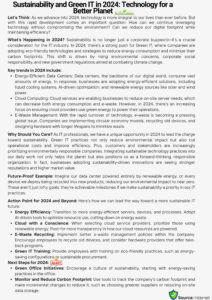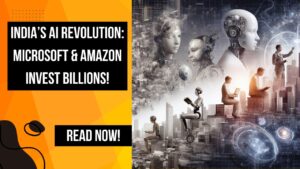In the rapidly evolving landscape of emerging technologies, Artificial Intelligence (AI) has become a driving force, influencing various industries and reshaping our daily lives. However, as AI accelerates the development of cutting-edge technologies, it presents both unprecedented opportunities and challenges.

AI’s Role in Accelerating Opportunities: AI’s integration with data is revolutionizing processes across diverse fields. In 3D printing, AI aids in predicting, fine-tuning, and adjusting parameters, enhancing accuracy and efficiency. In biotech, AI analyzes genomic data for personalized medicine and accelerates drug discovery through predictive modeling. Additionally, AI improves user experiences in Virtual Reality (VR) and Augmented Reality (AR) by creating digital content, enhancing information display, and ensuring safe interactions in mixed-reality settings.
AI’s Challenges and Potential Misuses: While AI enhances opportunities, it also introduces challenges. Reverse engineering with AI raises concerns about unauthorized replication of 3D-printed objects. In biotechnology, there’s a risk of exposing sensitive data and breaching privacy through the analysis of personal biometric information. The intersection of AI with neuroscience, such as brain-computer interfaces, prompts questions about privacy, security, and human autonomy. The use of AI in VR and AR devices poses a high risk of data misuse, jeopardizing the authenticity of content and digital identities.
Exploring Emerging Technologies: In the fast-paced era of technological progress, various emerging technologies like 3D printing, AR, VR, biotechnology, and quantum technology are reshaping our society. This article delves into the impact of 3D printing on manufacturing business models, the potential of AR in improving education, and the ethical considerations surrounding biotechnology.
3D Printing: A Paradigm Shift in Manufacturing: While 3D printing isn’t new, its recent advancements have propelled it into a key technology. The article explains 3D printing’s process and its widespread applications, from consumer goods to components in cars and airplanes. Policy issues associated with 3D printing include concerns about malicious use, threats to traditional manufacturing, and the distribution of 3D blueprints online.
Augmented and Virtual Reality: Beyond Gaming: AR and VR are emerging beyond the gaming industry, finding applications in health, education, and development sectors. The article defines AR and VR, providing examples like Pokemon Go. It explores the potential of VR in creating simulated environments and experiences. The focus extends to the broader impact of these technologies beyond entertainment.






